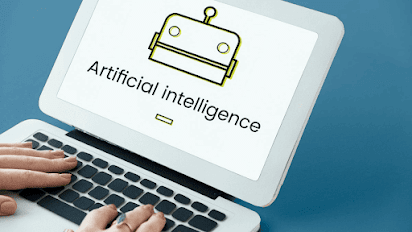Advantages and Disadvantages of AI
In a world where technology is evolving at a breakneck pace, Artificial Intelligence (AI) has emerged as a game-changer. From simplifying our daily tasks to revolutionizing industries, AI has become an integral part of our lives.
However, like any groundbreaking innovation, AI comes with its set of advantages and disadvantages. Let's embark on a journey to explore the fascinating realm of AI, unpacking both the perks and pitfalls.
Advantages of AI
1. Automation Revolution
AI has ushered in the era of automation, significantly reducing manual efforts in various industries. Mundane and repetitive tasks can now be handled by intelligent machines, freeing up human resources for more creative and complex endeavors.
2. Enhanced Efficiency and Productivity
Machines powered by AI algorithms operate at speeds incomparable to humans. This translates into enhanced efficiency and increased productivity across sectors such as manufacturing, healthcare, and finance.
3. Precision and Accuracy
AI systems are capable of processing vast amounts of data with unparalleled speed and accuracy. This precision is particularly beneficial in fields like medical diagnostics, where accurate and timely assessments can be a matter of life and death.
4. 24/7 Operations
Unlike humans, AI-powered systems don't need breaks or sleep. This allows for continuous, round-the-clock operations, making them invaluable in critical areas such as cybersecurity and customer support.
5. Predictive Analytics
AI excels at analyzing patterns in vast datasets, enabling businesses to make informed decisions. Predictive analytics can foresee market trends, optimize supply chains, and even anticipate potential failures in machinery.
Disadvantages of AI
1. Job Displacement Concerns
The very efficiency that AI brings can lead to job displacement, raising concerns about unemployment in certain sectors. Striking a balance between automation and human employment remains a crucial challenge.
2. Lack of Creativity and Intuition
While AI can perform tasks based on pre-existing algorithms, it lacks the creative thinking and intuition that humans bring to the table. It cannot replace the innovative and emotional aspects of human decision-making.
3. Ethical Dilemmas
AI systems are only as unbiased as the data they are trained on. Issues of bias and fairness can arise, leading to ethical concerns, especially in critical areas such as criminal justice and hiring processes.
4. High Initial Costs and Dependency
Implementing AI technology requires significant upfront investment. Additionally, dependence on AI systems may lead to vulnerabilities, particularly if there are malfunctions or security breaches.
5. Privacy Concerns
AI systems often require vast amounts of data for training and operation. This raises concerns about data privacy, as individuals may be uncomfortable with the idea of their personal information being used without their explicit consent.
Navigating the Future
In the grand scheme of things, the advantages of AI are transformative, but it's essential to navigate the path forward carefully. Striking a balance between leveraging the benefits of AI and mitigating its drawbacks is key to harnessing its full potential.
As we step into this AI-driven future, it's crucial to foster a collaborative relationship between humans and machines. By acknowledging the advantages and disadvantages, we can work towards creating a future where AI enhances our lives while respecting our shared values and principles.
The journey may be complex, but with informed decisions and responsible development, we can ensure that AI becomes a force for good in the ever-evolving extraordinary journey of human progress. How are you embracing the future with AI. Is it scary or intriguing for you?




Comments
Post a Comment